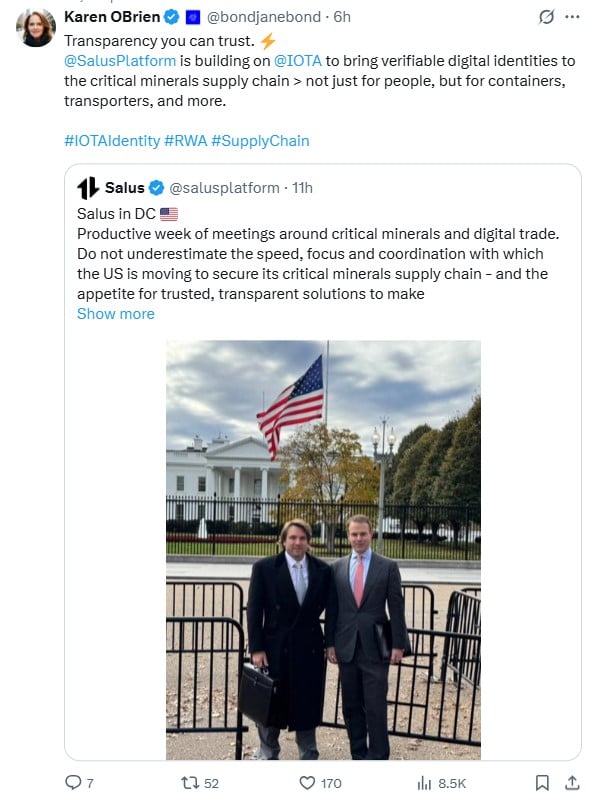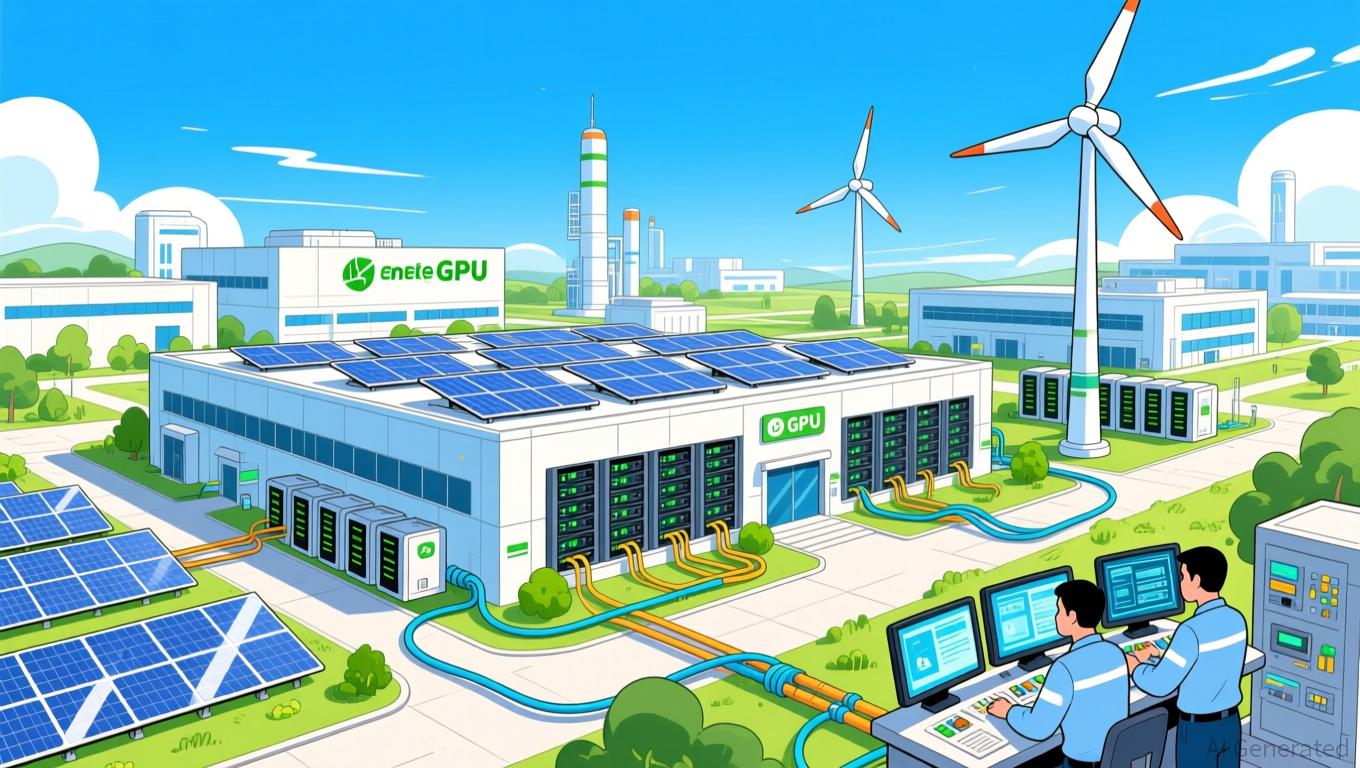- IOTA Foundation CMO, Karen O’Brien, highlighted Salus as the solution for the U.S. to enable a transparent mineral supply chain.
- IOTA is bringing critical minerals on-chain to expand its focus on Real World Assets (RWA).
The United States is gradually diversifying away from a China-dominated trade system towards transparent mineral supply chains. IOTA CMO, Karen OBrien, believes Decentralized Finance (DeFi) platform Salus is the timely solution for the U.S.
How IOTA-Powered Salus Can Steps In
In an X post, Karen pitched the IOTA-powered Salus platform as the solution to enable transparent mineral supply chains in the U.S. She emphasized transparency as a foundational trust mechanism in global trade, something Salus is known for.
In essence, Karen is optimistic that Salus, together with IOTA , can transform opaque, paper-based supply chains into a transparent, automated network.
This comment is in response to a post from the Salus team after meetings in Washington, D.C. It likely involved policymakers, agencies, and industry groups focused on national security and economic strategy.
The key theme of the post is that the U.S. is moving to secure its critical minerals supply chain. According to the team, the U.S. government is seeking trusted, transparent solutions to make that happen.
 IOTA-Salus Update | Source: Karen OBrien
IOTA-Salus Update | Source: Karen OBrien
Governments and banks want tools like Salus to de-risk investments, as traditional finance is slow and exclusionary. The Salus IOTA-powered transparency fills this gap, enabling real-time verification for funding through stablecoins or DeFi.
Salus, which launched on the IOTA chain on September 10, 2025, was designed to modernize trade finance, especially for “critical minerals”. These minerals, including lithium, copper, rare earths, and tantalum, are essential for technologies like EV batteries, microchips, and renewable energy.
Salus connects miners and suppliers, often in Africa, with funders and buyers, using blockchain to digitize and tokenize trade documents. This turns physical assets into verifiable digital ones, reducing fraud and speeding up financing.
The IOTA-powered platform aims to address a massive global trade finance gap, where demand for funding exceeds what banks can provide.
IOTA Bringing Critical Minerals On-Chain
In the critical minerals trade, proving the legitimacy of a shipment is crucial for financing, insurance, and regulations.
IOTA’s technology provides a solution by anchoring data to its immutable ledger. The blockchain allows founders, customs, and buyers to verify claims instantly, reducing delays from weeks to minutes.
As outlined in our recent blog post, IOTA is reportedly working to bring critical minerals on-chain following a recent US-Japan deal.
IOTA intends to provide better tracking and digital proof of the materials’ origin. Singapore is reportedly the main hub for financing and shipping the minerals before they get to the US or Japan.
In a previous article, we discussed that IOTA is already driving real-world blockchain adoption across emerging markets. With active deployments in Kenya and Rwanda, IOTA is offering a scalable, transparent, and asset-backed ecosystem.
Venture capital giant a16z claimed programmable, low-cost blockchains are the key drivers of the next phase of crypto adoption. Notably, IOTA has positioned itself ahead of this curve, with its recent transition to a delegated proof-of-stake (dPoS) model powered by MoveVM .
Recommended for you:
- Buy IOTA Guide
- IOTA Wallet Tutorial
- Check 24-hour MIOTA Price
- More IOTA News
- What is IOTA?


